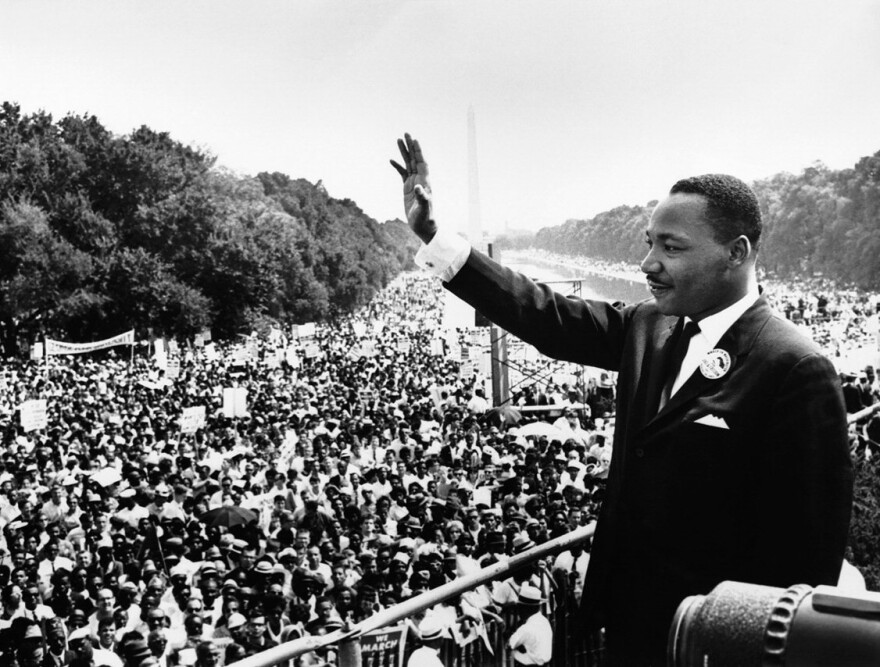Commentary: This week we observed the birthday of Martin Luther King, Jr., the Baptist minister and civil rights activist whose life was cut short by a bullet in Memphis, Tennessee in 1968.
Dr. King's face is identifiable across generations, yet the majority of us do not delve deeply into King's writing and speeches, venturing no further than a unit in a history class or an online article here or there. The elites that hold federal power pay tribute to King, and our nation's first African-American President frequently quotes him. While King has an iconic familiarity, his radical vision of a revolution in American values remains a bridge too far even for liberal members of the political class.
As King stated in a speech one year before his death, "We must rapidly begin the shift from a 'thing-oriented' society to a 'person-oriented' society. When machines and computers, profit motives and property rights are considered more important than people, the giant triplets of racism, materialism, and militarism are incapable of being conquered." There we remain in 2016.
In his final book, "Where Do We Go From Here: Chaos or Community," King identified the basis of racism in economics. The United States was founded on the idea of human idea of quality: "All men are created equal...endowed by their Creator with certain unalienable rights...Life, Liberty, and the pursuit of Happiness." From the very beginning, however, the country and its economy were founded on the contradiction of that ideal: the extermination and removal of indigenous peoples and the institution of slavery. "With the growth of slavery," King wrote, "men had to convince themselves that a system which was so economically profitable was morally justifiable. The attempt to give moral sanction to a profitable system gave birth to the doctrine of white supremacy." As a result, "a continuous indoctrination of Americans has separated people according to mythically superior and inferior qualities while a democratic spirit of equality was evoked as the national ideal."
King ventured into forbidden territory when he linked racial and economic justice to militarism, the perpetual wartime economy and aggressive assertion of military dominance in economically valuable parts of the world, and "defense" budgets that deny resources for quality universal education, health care, infrastructure, the bases of a stable and peaceful society. "True compassion is more than flinging a coin to a beggar," said King in his "Beyond Vietnam" speech. "It comes to see that an edifice which produces beggars needs restructuring."
Freedom, as King defined it, consists of three capacities: one to deliberate, another to decide and act, and a third for responsibility. King linked responsibility (and thus freedom itself) to "unenforceable obligations" beyond what is required by written laws. "No code of conduct ever compelled a father to love his children," King wrote. "The law court may force him to provide bread for the family, but it cannot make him provide the bread of love. A good father is obedient to the unenforceable."
One could add that when one's own humanity, one's own freedom, is found in community with one another, it is no longer strictly "obedience." The will to which we adhere is our own, realized in solidarity and love.
King has been gone for nearly half a century and we remain estranged, quarantined, by privatized notions of liberty. His call for the nation to obey our unenforceable obligations to one another stands like a pillar while we teeter on a foundation of injustice.
--
Algernon D'Ammassa writes the weekly "Desert Sage" column for the Deming Headlight and Las Cruces Sun News. Write to him atDesertSageMail@gmail.com.


